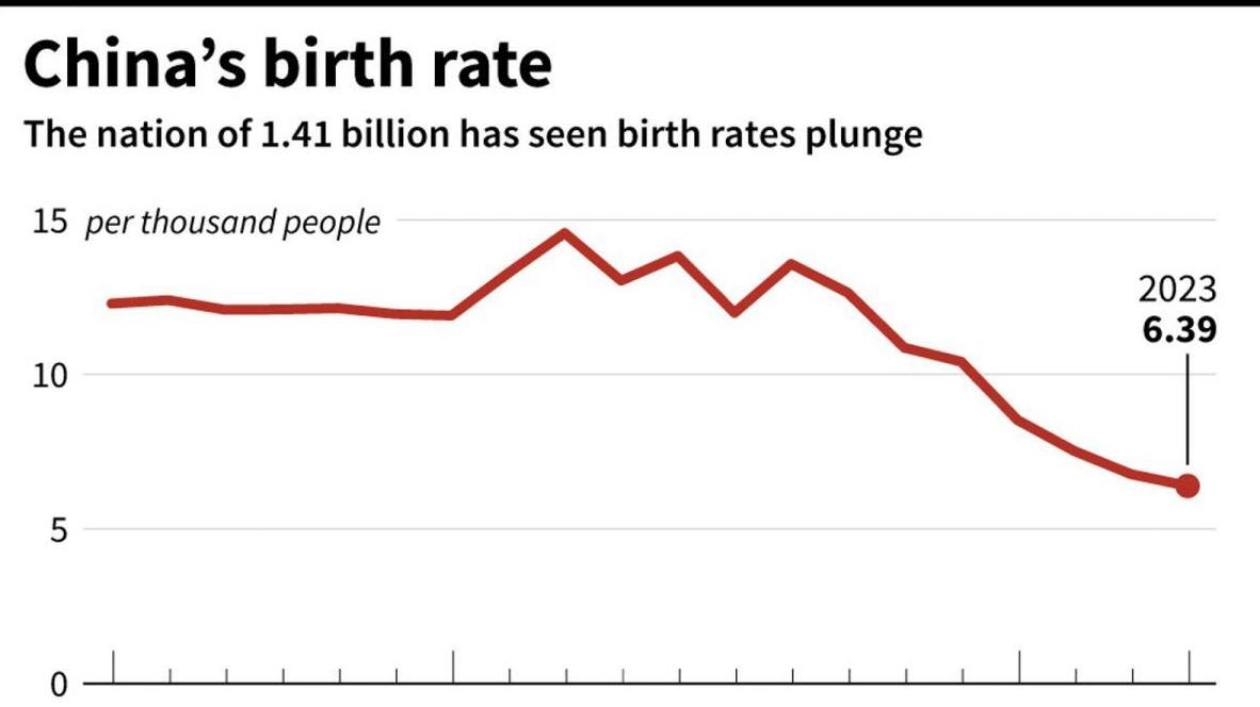China has announced measures to enhance family planning and parenting strategies in an effort to increase birth rates, according to a statement from the state council, or cabinet. This comes after two consecutive years of population decline. Last year, China's birth rate reached an all-time low, with the country's population of 1.4 billion being surpassed by fellow Asian giant India as the world's most populous nation.
The state council emphasized the need to foster 'a new culture of marriage and childbearing' by promoting respect for childbearing, appropriate age for marriage, and shared parental responsibility for childcare. Proposed measures include improved maternity insurance, extended maternity leave, subsidies, and increased medical resources for children. The cabinet also urged local governments to allocate budgets for childcare centers and implement preferential taxes and fees for such services.
'Supporting childbirth at this stage is of great significance,' said Yang Chang, chief policy analyst at Zhongtai Securities Research Institute, noting that Monday's announcement would likely serve as a blueprint for future policies. With the number of women of childbearing age expected to decline and the willingness to have children not likely to increase soon, policy support is crucial to reversing the downward trend in births.
Although China ended its one-child policy in 2015, it has faced challenges in boosting birth rates, particularly as rural populations migrated to cities for employment. Education is another focus, with local authorities directed to enhance financial aid for students from disadvantaged families, including the 'gradual expansion of the scope of free education.' Local governments were also instructed to provide more support for families with multiple children in housing and employment, and to strengthen protections for pregnant women and new mothers in the workforce.
The cabinet also suggested establishing non-commercial platforms for young people to meet, date, and marry as a means to encourage births. These measures follow a recent survey by health officials aimed at understanding the factors influencing attitudes towards childbearing and the fears associated with having children.
Source link: https://www.khaleejtimes.com






